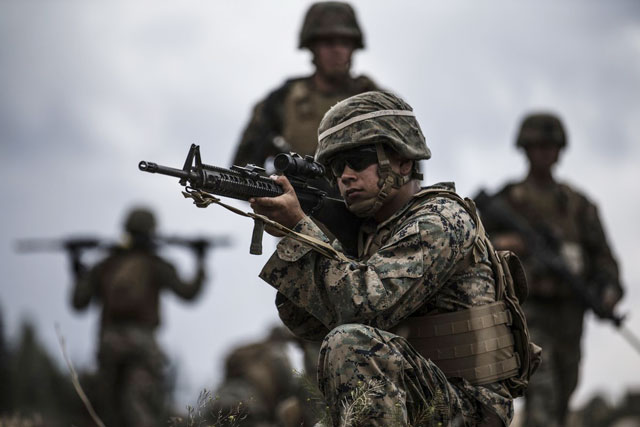
Aboard a US military aircraft, Undefined | AFP | The United States will make a decision on the level of its presence in Africa, particularly in the Sahel region, in about two months, Washington’s top military officer said Thursday.
Washington has some 7,000 special forces on rotation in Africa carrying out joint operations with national forces against jihadists, particularly in Somalia.
“There is no explicit timeline,” the chairman of the US Joint Chiefs of Staff, General Mark Milley, told journalists.
Milley was on a plane to Washington after a meeting in Paris with his French counterpart General Francois Lecointre.
“We’ll probably get Secretary-level decisions in a month or two, maybe six weeks, something like that,” he added, referring to Defense Secretary Mark Esper.
Esper has announced his intention to implement the national defense plan outlined by his predecessor, Jim Mattis, that refocuses the Pentagon’s efforts on the US’ strategic competitors — China and Russia — at the expense of the anti-jihadist fight.
On Monday, Milley said the US wants to reduce its military presence in Africa, just as French President Emmanuel Macron was gathering his counterparts from Burkina Faso, Chad, Niger, Mali and Mauritania in an effort to bolster the fight against jihadists in the Sahel.
French officials were alarmed, with a presidency source saying the US made “irreplaceable” contributions to Sahel operations — particularly in surveillance and air-to-air refuelling.
France has 4,500 soldiers deployed as part of the so-called Barkhane operation in the Sahel-Saharan strip, an area as large as Europe, to fight against armed extremist groups.
The Sahel countries also said they hoped Washington would maintain its “crucial support” in combating the Islamist extremists.
Milley said that the US has no intention of withdrawing completely from Africa.
“A lot of people think that we are ‘pulling out of Africa.’ I think that is a mischaracterization and an overstatement,” he said.
“The question that we are working with the French on, is the level of effort we are supporting the French with. Is it too much? Too little? About right?” he said.
Milley added that, upon his return to Washington, he would pass on the requests from Paris to Esper for a decision.
 The Independent Uganda: You get the Truth we Pay the Price
The Independent Uganda: You get the Truth we Pay the Price





